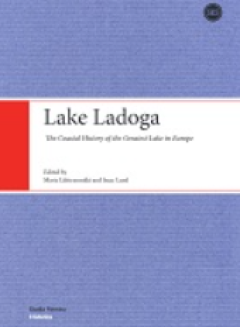Ditapis dengan
E-book Blue Planet Law The Ecology of our Economic and Technological World
In the twenty-first century, the internationalcommunity and states face the challenge ofreconciling the economic and technologicaldevelopment of our post-industrial societieswith the prevention or mitigation of globalenvironmental problems such as climatechange, ocean degradation, and biodiversityloss. Nowadays, international environmentallaw leaves up to the sovereignty of each statemost o…
- Edisi
- -
- ISBN/ISSN
- 9783031248887
- Deskripsi Fisik
- 280 hlm
- Judul Seri
- -
- No. Panggil
- 320.58 GAR b

E-book Lake Ladoga : The Coastal History of the Greatest Lake in Europe
Coastal history has been a reference point in maritime, harbor, and naval history, coastal urban history and interdisciplinary marine studies,4but it is only in the last twenty years that climate change has stimulatedenvironmental humanities5practitioners to focus on water, sustainable management of its resources, and multidisciplinary studies.6 In the pro…
- Edisi
- -
- ISBN/ISSN
- 9789518586305
- Deskripsi Fisik
- 237 hlm
- Judul Seri
- -
- No. Panggil
- 320.58 BJO l
E-book Bioeconomy and Global Inequalities : Socio-Ecological Perspectives on …
The term ‘bioeconomy’ is commonly met with a sense of uncertaintyregarding its meaning and purpose. In general, there are three differentfields of public and scientific debate about the bioeconomy. NicholasGeorgescu-Roegen (1971) referred to the bioeconomy as a transforma-tional pathway towards a degrowth society. In contrast, the debate about‘biocapitalism’ focuses on the commodificati…
- Edisi
- -
- ISBN/ISSN
- 9783030689445
- Deskripsi Fisik
- 339 hlm
- Judul Seri
- -
- No. Panggil
- 320.58 BAC b

E-Book Endeavoring for China’s Environment and Development Transformation
hina Council for International Cooperation on Environment and Development (CCICED) has been woven into the fabric of China’s environmental development for the past 30 years—the length of an entire generation. It is also consistent with the most rapid modernization shift of the nation’s economy–environment relationship. This report provides insights into how CCICED operates and its succe…
- Edisi
- -
- ISBN/ISSN
- 9789819976874
- Deskripsi Fisik
- 199 halaman
- Judul Seri
- -
- No. Panggil
- 320.58 ZHA e
 Karya Umum
Karya Umum  Filsafat
Filsafat  Agama
Agama  Ilmu-ilmu Sosial
Ilmu-ilmu Sosial  Bahasa
Bahasa  Ilmu-ilmu Murni
Ilmu-ilmu Murni  Ilmu-ilmu Terapan
Ilmu-ilmu Terapan  Kesenian, Hiburan, dan Olahraga
Kesenian, Hiburan, dan Olahraga  Kesusastraan
Kesusastraan  Geografi dan Sejarah
Geografi dan Sejarah